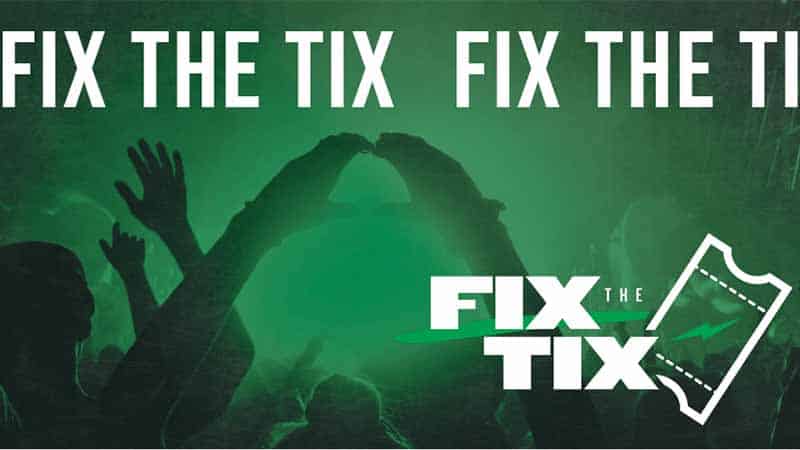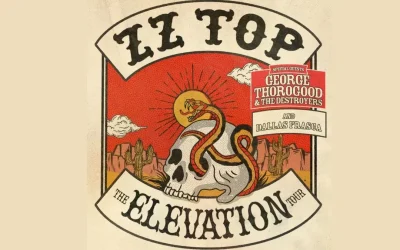After something of a soft launch last month, the Fix the Tix coalition led by a coterie of independent entities within live music finally announced its actual campaign goals via a manifesto published earlier in June. The group, which has ties to some of the most powerful players in the industry (just not directly Live Nation or Ticketmaster), outlined a series of goals that are practically a retread of the Live Nation-led “Fair” ticketing proposal introduced earlier in 2023.
Consumer advocates welcomed their voice to the ongoing efforts to improve what many consider a broken live events marketplace.
“Consumer organizations were proud to stand with groups represented by the Fix the Tix coalition more than a decade ago when we opposed the disastrous Ticketmaster-Live Nation merger, says John Breyault, Vice President of Public Policy, Telecommunications and Fraud at the National Consumers League. “We share many of the goals of the Fix the Tix coalition’s plan, such as ending fraudulent resale practices, ensuring that fans benefit from transparent, all-in pricing of tickets, and cracking down on illegal ticket bots.”
At its core, the music industry continues to prioritize one core item with all of its messaging via these campaigns: eliminate consumer ticket resale rights in the name of ending “scalpers.”
The phrase “predatory resellers” appears in each of the first four paragraph of the detailed roadmap that FixTheTix released in hopes of influencing the wave of legislative efforts taking place across the U.S. this year, both at the local and federal levels. “We urge Congress to enact comprehensive legislation that safeguards consumers from fake tickets, price gouging, and other deceptive practices, provides transparency in ticket pricing, and restores integrity to the ticketing marketplace,” it says.
Drilling down into the specific aspects its insider-led coalition hopes to achieve, you get their core pillars:
- Ban “speculative” ticket listings
- Ban ticket resale platforms from using artist or venue names on their websites
- Force a switch to all-in ticket pricing
- Require ticket sellers on all marketplaces list their name and contact information
- Ban ticket bots
- Ban primary ticket sellers from also engaging in ticket resale
- Give fans the right to sell tickets at or below the price they paid
- Make sure these rules are nationwide and enforced
These rules are, as said above, largely a retread of Live Nation’s wishlist from its FAIR Ticketing campaign, which seeks to harshly regulate ticket resale while ignoring criticism of major issues like ticket holdbacks and their own alleged monopoly and its role in the ever-increasing cost of attending live events for consumers.
One notable exception to this are the “Fix” campaigns hopes for banning primary and resale to be operated by the same company – something that Live Nation/Ticketmaster does. The name and contact information disclosure request is also unique to their campaign, but just like the other industry-led wishlist, Fix the Tix hopes to convince legislators that consumers would somehow be better off with less power over the tickets they’ve purchased, rather than more choice.
“Unfortunately, many of the remedies proposed by the Fix the Tix Coalition would curtail the rights of consumers to buy and sell tickets on an open and competitive secondary marketplace, leading to ever more control by the dominant player in the industry,” Breyault says. “The vertically-integrated Live Nation monopoly has become a $4.5 billion per year force in the secondary market. It has every incentive to use its dominance in primary ticketing, event promotion, venue ownership and operation, and artist management to curtail competition in the one part of the live event industry – secondary ticketing – that it does not already control.”
Breyault advocated for a more balanced approach to reforming the consumer ticket-buying experience, through some of the other legislation that is being considered already by lawmakers at the federal level. He specifically referenced the BOSS and SWIFT Act, the Junk Fee Prevention Act, and the bipartisan Cantwell-Cruz TICKET Act.
“We would welcome the support of the Fix the Tix Coalition in moving forward these important bills that address consumers’ long-standing concerns.”
Seeing as “Fix The Tix” and its key figures like Irving Azoff have already come out strongly opposed to the BOSS and SWIFT Act, it seems unlikely there would be room for a more balanced reform goalset than the one they’ve laid out.
Read more of the Fix The Tix campaign’s goals for ticket reform here at their website.




